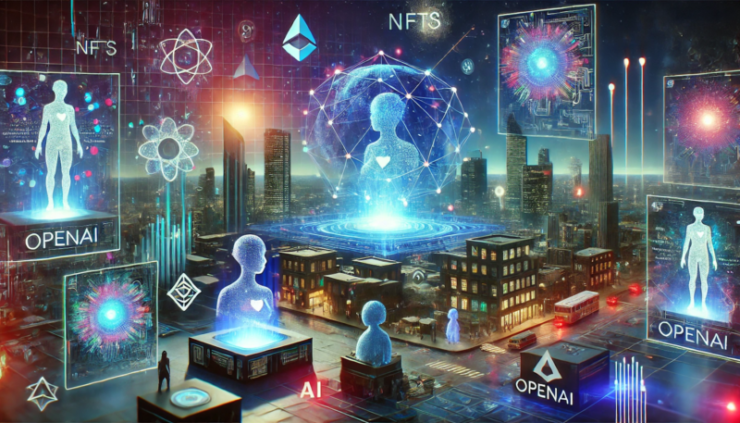The entertainment industry is undergoing a profound transformation driven by artificial intelligence (AI), Web3, and decentralized technologies. OpenAI’s continued expansion into AI-driven content creation, video generation, and media partnerships validates the evolving digital landscape.
With AI driving advancements in video generation, journalism, and digital experiences, the boundaries of creative expression are being redrawn. The fusion of AI with blockchain technology allows for enhanced transparency, verifiable ownership, and dynamic monetization models, ushering in a decentralized media revolution that empowers creators and reshapes audience engagement.
OpenAI’s Role in AI-Powered Content and Web3 Integration
OpenAI’s recent developments, including the launch of Sora—its AI video-generation tool—demonstrate how AI is revolutionizing digital media. Sora enables users to generate high-definition videos through text prompts, similar to how DALL-E produces AI-generated images. This innovation expands the possibilities for AI-driven entertainment, allowing content creators to blend AI-powered storytelling with blockchain technology for verifiable ownership and monetization.
Beyond Sora, OpenAI’s strategic partnerships with major media organizations such as Axios, The Atlantic, and News Corp highlight the growing role of AI in journalism. ChatGPT now integrates news summaries and excerpts from trusted sources with clear citations, ensuring proper attribution while enhancing content accessibility. Additionally, OpenAI has invested in expanding local news coverage through AI-driven newsroom initiatives in Pittsburgh, Kansas City, Boulder, and Huntsville.
These partnerships align with Web3’s decentralized model, where AI-generated content can be securely distributed using blockchain technology. Publishers and content creators can leverage NFTs and smart contracts to tokenize their work, allowing for direct audience engagement and fair compensation without reliance on traditional intermediaries.
Web3, and NFTs
The synergy between AI and Web3 is unlocking new creative opportunities and redefining digital ownership. OpenAI’s generative models, when combined with NFTs, empower artists, writers, and filmmakers to tokenize AI-generated content as unique, verifiable digital assets. This model ensures authenticity, prevents unauthorized duplication, and enables direct monetization through NFT marketplaces.
In addition, AI is transforming the user experience in digital spaces. OpenAI’s influence extends into the metaverse, where AI-powered avatars, interactive environments, and real-time content personalization are enhancing virtual interactions. Blockchain technology ensures transparency and ownership rights in these digital ecosystems, aligning with Web3’s mission to decentralize content distribution.
Also, OpenAI’s latest updates to its Realtime API, including enhanced speech-to-speech capabilities and lower processing costs, pave the way for more immersive AI-driven experiences. This advancement supports AI-powered virtual assistants and real-time audio generation, further blurring the lines between AI-generated content and human creativity.
The entertainment industry is also changing at a very fast rate, driven by AI’s ability to generate high-quality content and Web3’s decentralized framework for ownership and monetization. By merging AI-generated media with blockchain verification, OpenAI is playing a pivotal role in shaping the next generation of digital experiences.





